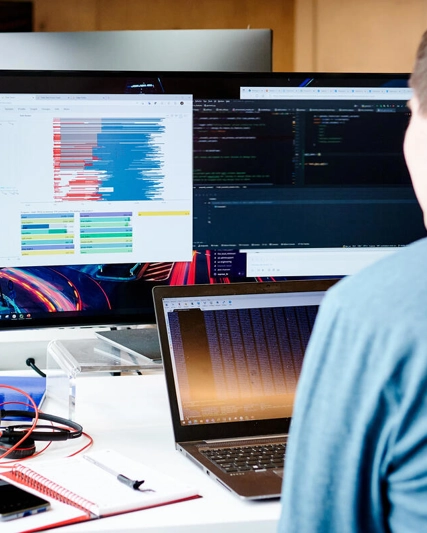At GSK our animal welfare strategy is anchored in enabling innovative science and technology through our commitments to the contemporary principles of Replacement, Reduction and Refinement, also known as the 3Rs.
Use of animals
We take our moral and societal responsibility to animals seriously by providing high standards for the care, welfare and treatment of all animals in our charge.

Our company-wide policy
We use animals for research studies when their physiology and disease process is similar to that in humans. When using animals, we follow scientific principles to ensure that we prevent or minimise pain and distress before, during, and after experimental procedures.
Our company-wide policy covers the standards of care and the ethical treatment of animals in research, development and testing of all GSK medicines and vaccines. All GSK animal research must comply with this policy.
We actively observe our policy by:
- Investing in the development and validation of replacement technologies, including complex in vitro models and in silico models.
- Applying appropriate statistics in study designs to answer the scientific question using as few animals as possible.
- Engaging experts and specialists in humane care to minimise any pain or distress to animals, and actively pursue initiatives to improve animal welfare based on current animal welfare science.
- Employing trained specialty staff, including qualified veterinarians, available at all times for advice and help with clinical care.
Non-human primates
How our work is monitored
Our work with other organisations
The 3Rs at GSK
Our 3Rs[1] strategy of replacement, reduction and refinement is a science-led, ethical framework that we use to guide us in our work with animals. Where animal research is conducted or commissioned, we are advancing the 3Rs (Reduction, Refinement, Replacement) and seeking ways to minimise animal use and reduce the impact on the animals.
Across GSK, where animal research is conducted or commissioned, we are advancing the 3Rs and seeking ways to minimise animal use and reduce the impact on the animals. Wherever possible, we pursue new methods and technologies that do not require animals such as in vitro models and in silico prediction.
When we do use animals, the best experimental design is achieved through application of statistical principles to ensure the minimum numbers of animals are used to answer scientific questions. Peer review occurs from additional scientists, biostatisticians, animal welfare specialists and veterinarians.
We are continuously improving animal welfare through shared learnings, housing and husbandry refinements and technologies. All our proposed animal research is reviewed by ethical panels. These panels consider animal welfare and the 3Rs prior to the approval of our studies.
[1]The 3Rs principles were developed in 1959 with the standard definitions recently expanded by the NC3Rs.








